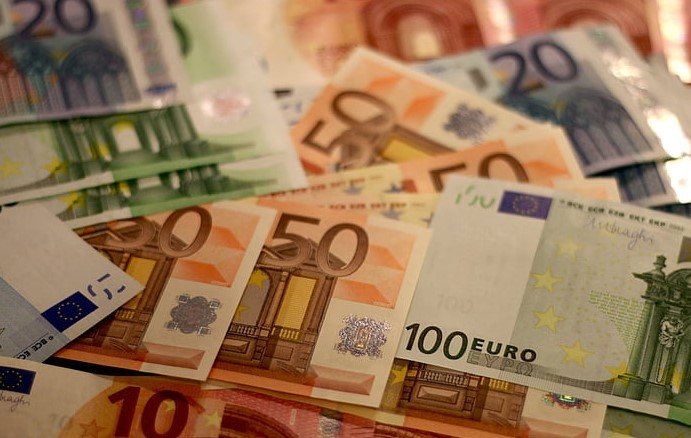The euro kicked off Egypt’s banking week with a bang, jumping more than 30 piasters in just a day. That’s not just a number—it’s a gut punch for many Egyptians already wading through the murky waters of inflation and currency volatility.
Banking Week Opens With a Price Shock
Egypt’s currency desks opened Sunday to a jolt. The euro was up sharply across the board—rising to EGP 58.09 for purchase and EGP 58.21 for sale at the Central Bank of Egypt (CBE). But the two big state lenders, Banque Misr and National Bank of Egypt, went even further.
EGP 58.71 to sell the euro. That’s not chump change anymore.
For comparison, rewind two weeks: early June had the euro floating comfortably between EGP 56.4 and EGP 56.6. That’s nearly two pounds higher now, and honestly, it’s caught both the public and many traders off guard.
Why Is the Euro Rising So Fast?
Well, it’s not a simple answer. Several pieces are moving at once—and they’re all sharp-edged.
First, Egypt’s undergoing a series of painful—but necessary—economic reforms tied to its multi-billion-dollar bailout packages. The Central Bank has devalued the pound multiple times since last year to meet IMF demands and curb the black market.
That’s taken a toll.
Second, the euro itself is gaining strength globally. Strong economic data out of Germany, an uptick in EU interest rates, and shaky sentiment around dollar-denominated assets have made European currencies more attractive.
And third? Egypt’s still dealing with serious FX shortages. Importers can’t get dollars easily, and when they do, they pay a premium.

Where Egyptians Feel the Pain First
The average person might not be reading forex charts—but they feel this jump.
• Imported goods get pricier overnight. Electronics, car parts, even some medicines see instant hikes.
• Tuition fees for Egyptian students abroad—especially in Europe—just shot up.
• Travel? Forget it. Europe was already a stretch; now it’s even farther out of reach.
And here’s something most people don’t see right away: small businesses who rely on imported raw materials in euros are struggling to price products without alienating their customers.
A Look at Official Bank Rates
Let’s break it down. Here’s how Sunday’s euro exchange rates compared across Egypt’s major banks:
| Bank | Buy Rate (EGP) | Sell Rate (EGP) |
|---|---|---|
| Central Bank of Egypt | 58.09 | 58.21 |
| National Bank of Egypt | 58.33 | 58.71 |
| Banque Misr | 58.33 | 58.71 |
| Commercial International Bank (CIB) | 58.29 | 58.66 |
Some private banks, like CIB, trailed just slightly behind the state lenders but are expected to adjust as the week progresses.
One banker at a downtown Cairo branch, who asked not to be named, said, “Honestly, we expected a gradual rise—not this kind of leap. We had customers coming in asking if something happened politically.”
Nothing obvious. But something definitely moved.
FX Market Shrinking Behind the Scenes
Since the March 2024 devaluation, the black market for dollars and euros had quieted—at least officially. But the latest surge might be pushing some buyers back into the unofficial space.
It’s a shadow world where euros and dollars trade 5–10% higher than banks, and it’s often the only option for those needing large amounts fast—think hospital bills, international tuition, or importing machinery.
“I couldn’t wait for the bank anymore,” said Sarah, a Cairo-based fashion importer. “The euro was jumping too fast. I paid EGP 60 on the street just to secure inventory from Italy.”
That’s not just inconvenient—it’s destabilizing.
Could This Trigger Another Round of Inflation?
That’s the big fear now.
Egypt’s inflation rate had started to cool—officially down to 27.4% in May 2025, from 35.7% in January. But analysts warn this euro spike could reverse the trend.
In particular, the General Authority for Supply Commodities (GASC) is watching wheat prices. Many wheat contracts are priced in euros, and a 3.5% rise in euro value could raise bread costs down the supply chain—again.
Short paragraph alert: People will feel it in their wallets.
Even if subsidies keep basic bread cheap, non-subsidized bakeries and supermarkets will likely bump prices by week’s end. And transport costs? That’s always the next domino.
What Are Officials Saying?
The CBE hasn’t issued any specific statement about the euro rate spike. But sources inside the bank say it’s being “closely monitored.” In other words, they’re watching like hawks and hoping it settles.
Some economists, like Mohamed El Erian, have speculated that a stronger euro might benefit Egypt’s Eurobond visibility in the long-term—but that’s little comfort to those feeling the daily pinch.
One official at the Ministry of Finance, speaking on background, said, “We’re still working on FX liquidity. The market’s reacting faster than expected, but we remain committed to structural reform.”
Which is probably true.
But reforms don’t stop currency swings from hurting right now.
What’s Next? More Volatility Likely
In currency terms, this was a strong open to the week. If momentum holds, the euro might inch toward EGP 59 before the weekend. But it’s also possible the CBE could intervene quietly through liquidity injections or regulatory tweaks.
One thing is clear—nobody expects the pound to regain ground anytime soon.
Even seasoned traders are holding their breath.
